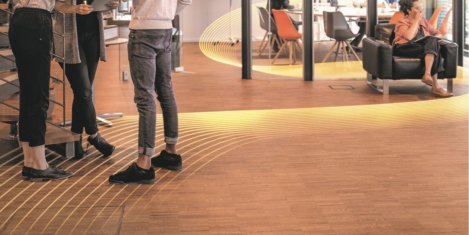March 26, 2020
Pandemic will force companies to rethink how they work
 The Coronovirus outbreak and the worldwide reaction to the pandemic will force companies to radically rethink how they operate and embrace technological investment, claims global tech market advisory firm, ABI Research. In its new white paper, Taking Stock of COVID-19: The Short- and Long-Term Ramifications on Technology and End Markets (registration), ABI Research Analysts look at the current and future ramifications of COVID-19 across technologies and verticals. Analysts also offer recommendations to weather the storm and strategies to help companies rebound and prosper after the pandemic has slowed.
The Coronovirus outbreak and the worldwide reaction to the pandemic will force companies to radically rethink how they operate and embrace technological investment, claims global tech market advisory firm, ABI Research. In its new white paper, Taking Stock of COVID-19: The Short- and Long-Term Ramifications on Technology and End Markets (registration), ABI Research Analysts look at the current and future ramifications of COVID-19 across technologies and verticals. Analysts also offer recommendations to weather the storm and strategies to help companies rebound and prosper after the pandemic has slowed.











 A gap exists between the way leaders and employees view progress toward equality in their organisations, according to new research from
A gap exists between the way leaders and employees view progress toward equality in their organisations, according to new research from 
 New research from
New research from 


 UK employers claimed £35 billion of free labour last year because of workers doing unpaid overtime, according to an analysis of official statistics published today by the
UK employers claimed £35 billion of free labour last year because of workers doing unpaid overtime, according to an analysis of official statistics published today by the 


 The UK is ignoring the value of millions of workers by overlooking workplace training and opportunities to upskill, a new survey has suggested. According to the
The UK is ignoring the value of millions of workers by overlooking workplace training and opportunities to upskill, a new survey has suggested. According to the 


 The UK’s ‘alternative workers’, comprising gig economy workers, freelancers and contractors, have cited lack of pay, benefits and job security as their most significant concerns in new research. Yet according to
The UK’s ‘alternative workers’, comprising gig economy workers, freelancers and contractors, have cited lack of pay, benefits and job security as their most significant concerns in new research. Yet according to 










March 2, 2020
Workers are as important as external stakeholders
by Bianca West • Comment